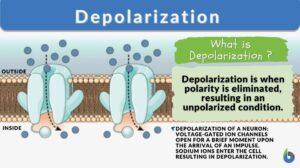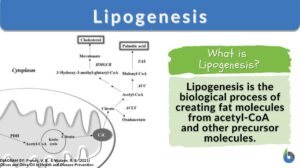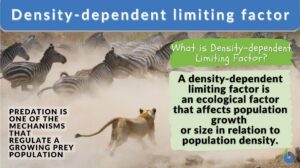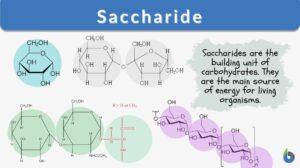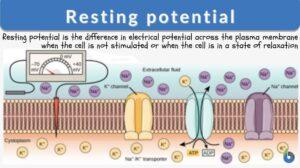Search Results for: exceeds
Depolarization
Depolarization is the removal of polarity by a process or action. It might also be used to describe how such activity leads... Read More
Population Growth and Survivorship
By: Maria Victoria Gonzaga Previously, we learned about biodiversity and endemism. Now, let's look at the... Read More
Threshold substance
threshold substance Any material (e.g., glucose) that is excreted in the urine only when its plasma concentration exceeds a... Read More
Regulation of Organic Metabolism, Growth and Energy Balance
Organic Metabolism Events of Absorptive and Post-absorptive States. The absorptive state is the period during which... Read More
Kidneys and Regulation of Water and Inorganic Ions
Renal Functions Kidneys remove/add substances from/to the plasma. Regulate water concentration, inorganic ion... Read More
Lipogenesis
Lipogenesis Definition Lipogenesis is the process of producing lipid or fat to store biochemical energy for later metabolic... Read More
Dehydration reaction
What is dehydration synthesis? A dehydration reaction is a form of biochemical reaction wherein a water molecule is lost or... Read More
Wilcoxon rank-sum test
Definition noun A non-parametric test of two samples which support exclusively on the order of observations in which the two... Read More
Transudation
Definition noun (1) The act, process, or condition of transuding, i.e. the oozing or passing gradually of a liquid possibly... Read More
Unsustainability
Definition noun (1) The incapacity of keeping (something) sustainable; the capability of getting depleted (2) The state in... Read More
Density dependent limiting factor
What Is A Density-Dependent Limiting Factor? Density-dependent limiting factors are limiting factors, which, depending on... Read More
Carrying capacity
Carrying Capacity Definition What is carrying capacity? In biology and environmental science, the carrying capacity of a... Read More
Threshold body
threshold body --> threshold substance Any material (e.g., glucose) that is excreted in the urine only when its plasma... Read More
Accumulation
Accumulation The action or process of accumulating, state of being or having accumulated, a collecting together. (Science:... Read More
Plasmolysis
Plasmolysis is the shrinking of protoplasm away from the cell wall of a plant or bacterium. The protoplasmic shrinking is... Read More
Muscle fatigue
Definition noun (physiology) A condition of the muscle in which its capacity to produce maximum voluntary action, or to... Read More
Saccharide
Saccharide Definition What is a saccharide molecule? A saccharide is the unit structure of carbohydrates. In biochemistry,... Read More
Glycosuria
Definition noun, plural: glycosuria The presence of atypically high sugar level in urine Supplement Glycosuria is a... Read More
Hyperthermia
Definition noun A condition in which the body temperature is higher than the normal range Supplement Hyperthermia pertains... Read More
Axon hillock
Axon Hillock Definition What is axon hillock? If you are familiar with the different parts of the neuron, the axon hillock... Read More
Water table
water table (Science: ecology) The zone of saturation at the highest average depth during the wettest season, it is at least... Read More
Resting potential
Resting Potential Definition The resting potential of a cell is defined as the difference in electrical potential across... Read More
Heatstroke
Definition noun A severe (sometimes fatal) illness caused by an overexposure to an excessive heat, which disturbs the... Read More
Population
Living organisms typically prefer to live, grow, and survive in groups. Except for some species that prefer solitude - both... Read More
